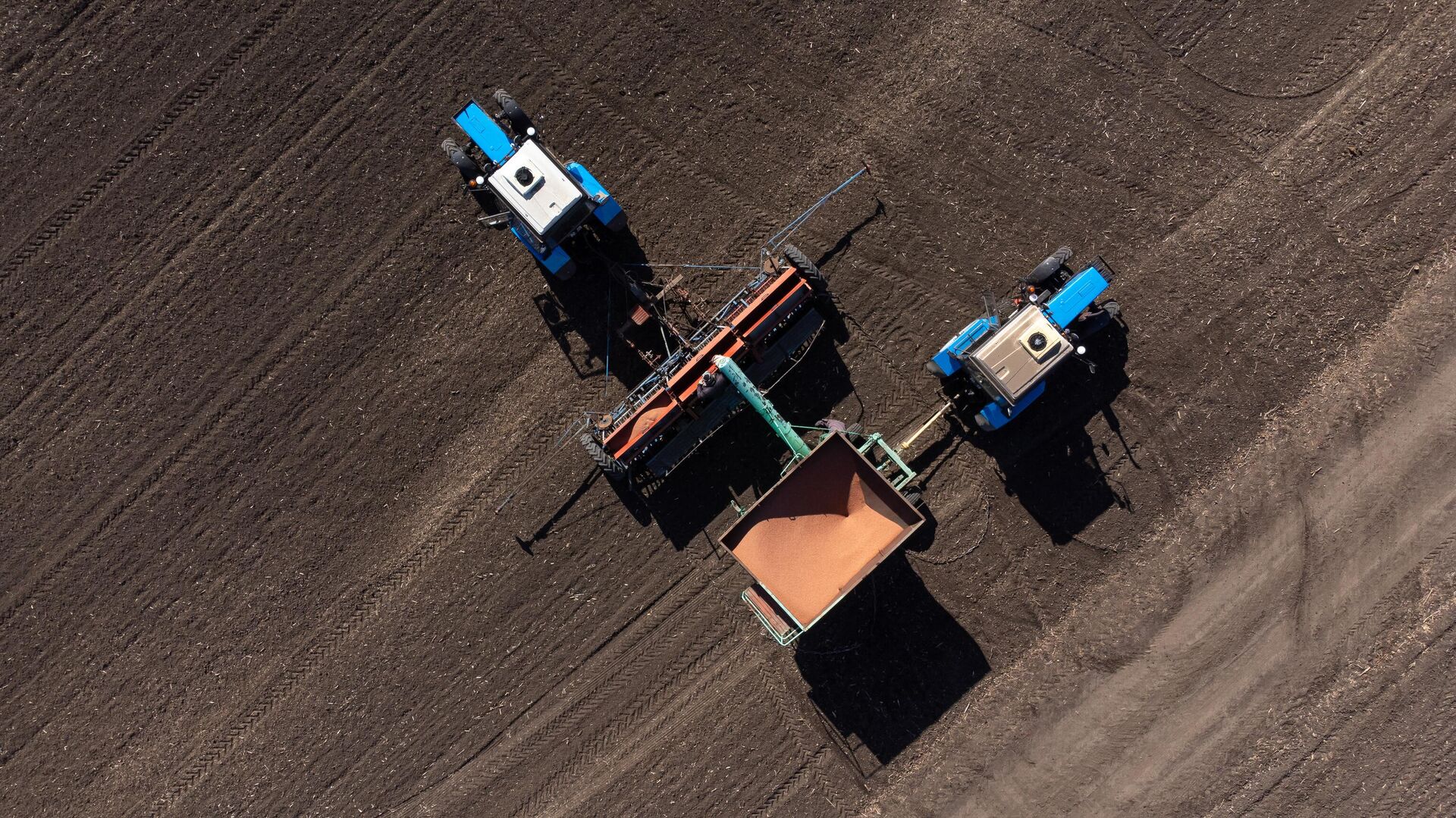Africa Emerges as Key Market for Russian Agriculture, President of Grain Union Says
15:25 21.08.2024 (Updated: 17:23 21.08.2024)

© Sputnik . Vitaly Timkiv
/ Subscribe
Russia has fulfilled all the promises to African countries that it made at the second Russia-Africa summit, said Oleg Ozerov, Ambassador-at-Large of the Russian Foreign Ministry, in mid-July. One of the promises was to support the continent with grain and fertilizers; grain went to Burkina Faso, Zimbabwe, the CAR, Mali, Somalia, and Eritrea.
Recently, Russian Minister of Agriculture Oksana Lut said that the country has hit the record for grain exports from Russia—at least 72 million tonnes for the past agricultural year—which ended in late June.
Against this background, Africa emerges as a significant market with a "very wide" geography of sales for Russian agricultural products, especially grain, Arkady Zlochevsky, President of the Russian Grain Union, told Sputnik Africa in an interview.
"It is enough to list such large countries that are buyers of Russian grain. As I have already said, Egypt, Algeria, Tunisia, and even Namibia and Botswana have joined this year and started buying, although their volumes are not very large yet. But traditionally, Mozambique, Tanzania, Kenya, Cote d'Ivoire, Ghana, and Sudan buy [from us]. Well, who else? Angola," he explained.
Moreover, Russia is not only focusing on wheat, but also expanding its supply of other crops. Last season, Russia became the leader in the global pea market and increased supplies of peas and lentils, the head of the union said. However, the volumes of these crops are significantly smaller compared to wheat.
"We should maintain our leading position in the world wheat market and slowly win back and expand markets for niche crops, including grain legumes," he highlighted.
According to Zlochevsky, the potential for BRICS to act as "a clearing house" for settlements under foreign trade contracts for agricultural products is seen as a crucial development. The establishment of an internal settlement system among BRICS countries that avoids US dollar payments could be highly beneficial.
Given the current complexities and delays associated with dollar and euro settlements, an alternative system is both necessary and advantageous, he argued.
As a part of the cooperation within the framework of BRICS, Russia plans to launch a mechanism for payments in national currencies, including the ruble, with several African countries in the near future in an effort to simplify trade settlements, Zlochevsky added.
"But we are facing enormous problems with counterflows. Disproportionality and imbalance of mutual settlements. This is the main issue at the moment. Bilateral settlements cannot be large-scale due to an imbalance. And it is precisely within the BRICS framework that these bilateral imbalances could be leveled by a common balance within the BRICS framework. And this would serve a tremendously positive role in the establishment of such settlements," he noted.
But the prospects depend on the decisions made by the government, agrarian authorities, and regulators, the Russian Grain Union's president said.
"I am not taking on the role of an oracle and saying that tomorrow, or the day after tomorrow, everything will change. We're going to wait for decisions [to be made]. I expect them to be quick and fairly expeditious within one, two seasons," he concluded.
